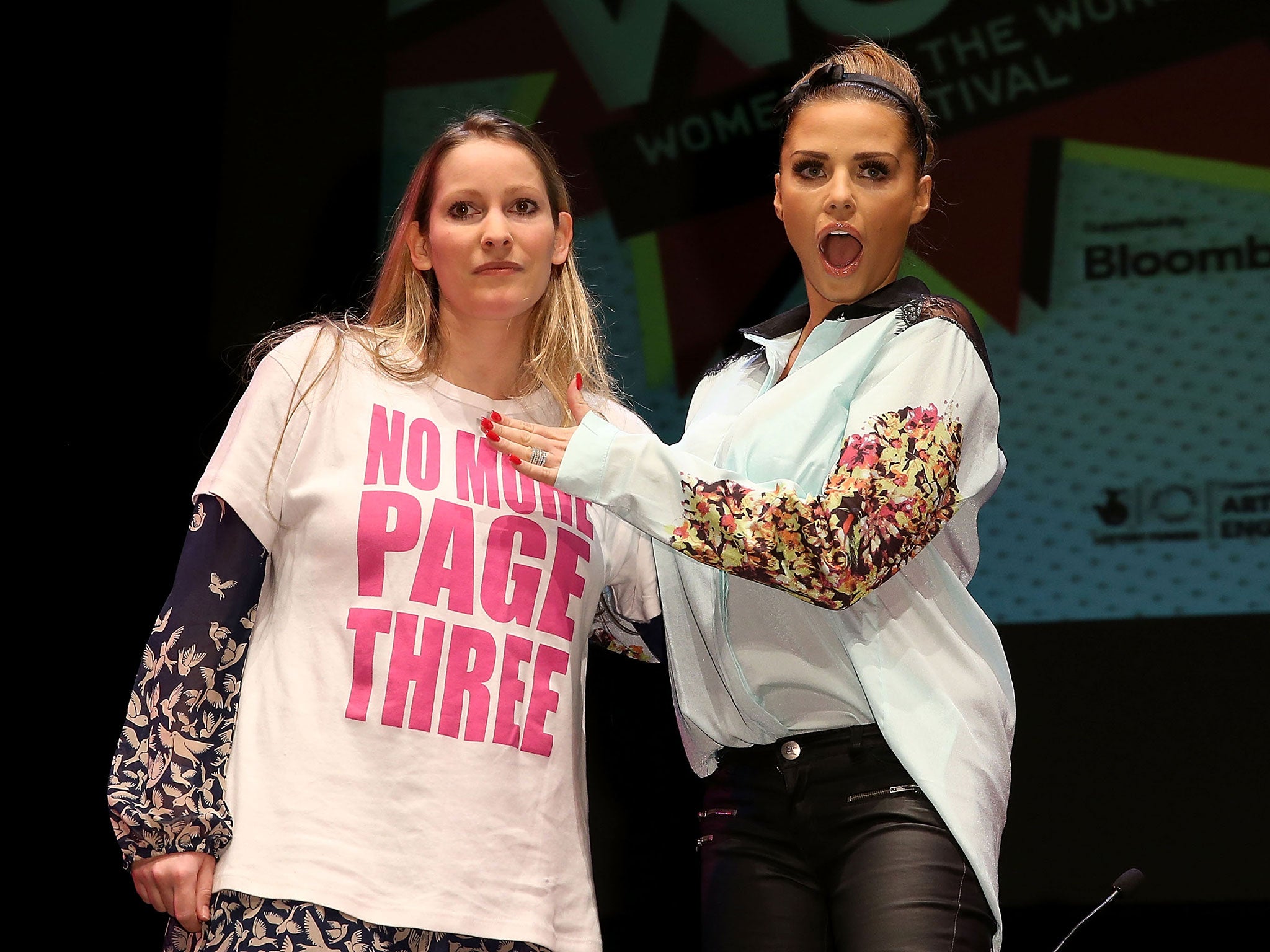How do we celebrate both press freedom and the ending of Page 3? Very easily
The campaign to bring this ‘Sun’ institution to an end was a model of its kind


Your support helps us to tell the story
From reproductive rights to climate change to Big Tech, The Independent is on the ground when the story is developing. Whether it's investigating the financials of Elon Musk's pro-Trump PAC or producing our latest documentary, 'The A Word', which shines a light on the American women fighting for reproductive rights, we know how important it is to parse out the facts from the messaging.
At such a critical moment in US history, we need reporters on the ground. Your donation allows us to keep sending journalists to speak to both sides of the story.
The Independent is trusted by Americans across the entire political spectrum. And unlike many other quality news outlets, we choose not to lock Americans out of our reporting and analysis with paywalls. We believe quality journalism should be available to everyone, paid for by those who can afford it.
Your support makes all the difference.Can it really be true? That Page 3, one of the most loved and loathed traditions in British life, is no more? Despite the nudging and winking that Rupert Murdoch has been making to the No More Page 3 campaign in the past two years, saying that he thought topless women in his newspaper was all a bit out of date, I never really believed it would happen so soon. But it seems to be the case that after 44 years, Lissy Cunningham, 21, from Manchester, became the final Page 3 girl when she appeared last Friday.
This is a stunning victory for the No More Page 3 campaign, set up by Lucy Anne Holmes in August 2012 after seeing the contrast in The Sun between, on the one hand, Olympic heroes like Jessica Ennis, and on the other, topless women. I signed the petition a month after it started, because Page 3 seemed so out of date in the 21st century. To me, it was about role models and the portrayal of young women in the media. I would never want my daughter, then aged two, to grow up thinking this was normal in a mainstream newspaper. Now nearly 220,000 people have signed the petition, which is an extraordinary achievement.
But what’s this, I hear Twitter say? How can people like me - who only two weeks ago held up their pens in defiance to declare “Je suis Charlie” in the wake of the Paris attacks, who believe in freedom of speech even if it causes offence and because, as David Cameron said at the weekend, the right to offend is an essential part of a free society - want to see the end of Page 3? How does getting our feminist knickers in a twist about semi-naked women sit with defending the right of Charlie Hebdo to publish cartoons of the Prophet Mohamed?
To which I say this: rather easily. The No More Page 3 petition and campaign was never about demanding a ban. Clare Short, in 1986, tried to introduce legislation to get rid of Page 3, and while the former MP should be applauded for putting up with being called “fat” and “jealous” by The Sun for all these years, I never agreed with the idea of having a law against nudity in newspapers.
Holmes and her fellow campaign organisers never threatened, bullied or waged terror. They stood in T-shirts outside The Sun’s offices. They organised a petition, which, with the help of social media, grew organically and popularly. There was no suggestion of a law or regulation by the state. The Sun, owned by a company, News UK, has the right in a free society to print photographs of bare breasts. Citizens of a free society have the right to organise a petition and, if it takes off like this one did, so be it. That’s freedom of expression. That’s democracy.
In the end, Rupert Murdoch, at 83 still an astute businessman, recognised that the world was changing. The vast numbers of signatures on the No More Page 3 petition showed him that, but so did the zeitgeist. Ten years ago, when Short tried to relaunch her campaign, there was barely any support. When Holmes launched her petition it caught the changing social mood. Now, in 2015, Page 3 looks so out of date.
When I was at university in the 1990s, all the young men, even the ones who thought they were trendy, had subscriptions to Loaded and pictures of naked women on their student hall bedrooms. It was post-Benny Hill “irony”, when a model or actress was semi-naked on the front cover, so it was OK. Yet it still made me and my female friends uncomfortable. Now there is a new generation that thinks all of this is rather naff. Nuts magazine has closed and Loaded has been rebranded. And among the millennials, it is both men and women who are not OK with Page 3.
Page 3 model Rhian Sugden tweeted: “It’s only a matter of time before everything we do will be dictated by comfy shoe wearing… no bra-wearing… man-haters.” But those who signed the petition are women and men, wearing comfy shoes and high heels. To be opposed to Page 3 is not to hate men. It is to want women to be recognised for their brains and their talent, not their breasts.
So no, this is not a blow for freedom of expression. Nearly a quarter of a million people had the freedom to express the view that they didn’t like Page 3. And a newspaper proprietor had the freedom to come to the conclusion that they were probably right.
Join our commenting forum
Join thought-provoking conversations, follow other Independent readers and see their replies
Comments